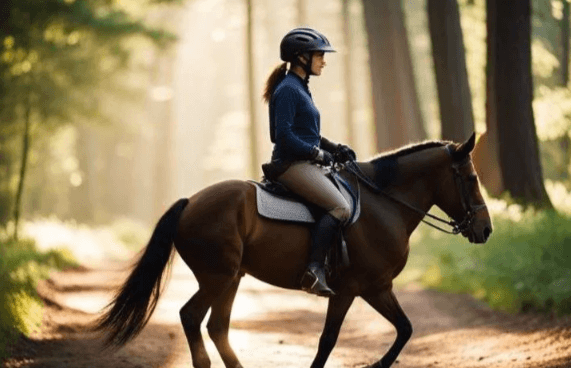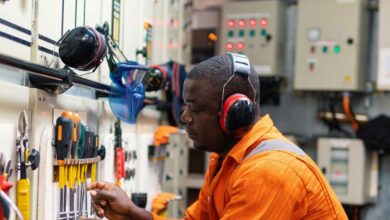How can beginners develop confidence and overcome fear while riding?

Introduction
Riding can be an exhilarating experience, but for beginners, it often comes with a fair share of fear and uncertainty. Developing confidence while riding is crucial to enjoying the sport and ensuring safety. This comprehensive guide offers practical strategies, mental exercises, and physical techniques to help beginners overcome their fears and become more confident riders.
Understanding the Common Fears of Beginner Riders
Fear is a natural response to new experiences, especially those that involve potential risks. For beginner riders, common fears include falling off, losing control, and facing traffic. Understanding these fears is the first step in addressing them effectively.
The Importance of Proper Training
Proper training is essential for building confidence. Enrolling in a reputable riding school can provide beginners with the necessary skills and knowledge. Professional instructors can guide new riders through the basics, ensuring they develop good habits from the start.
Choosing the Right Gear
Wearing the right gear can significantly impact a rider’s confidence. Helmets, gloves, and protective clothing not only provide safety but also give riders a sense of security. Knowing you’re protected can make a big difference in how you feel while riding.
Starting with a Suitable Bike
Choosing a bike that matches your skill level is crucial. Beginners should start with a bike that is easy to handle and control. Lightweight, low-powered bikes are often recommended for new riders as they are less intimidating and more forgiving.
Gradual Exposure and Practice
Confidence comes with practice. Gradual exposure to different riding conditions and environments helps build skills and reduce fear. Start in a controlled environment, like an empty parking lot, before progressing to more challenging scenarios.
Mental Preparation and Visualization Techniques
Mental preparation is as important as physical practice. Visualization techniques can help beginners imagine themselves riding confidently. Spending a few minutes each day visualizing successful rides can reinforce positive thinking and reduce anxiety.
Building Trust with Your Bike
Developing a bond with your bike can boost confidence. Spend time getting to know your bike, understand its controls, and how it responds to your inputs. This familiarity can make you feel more in control and less fearful.
Practicing Relaxation Techniques
Staying relaxed while riding is crucial. Tension can impair your ability to react and control the bike effectively. Practice deep breathing exercises and maintain a relaxed grip on the handlebars to help stay calm and focused.
Joining Riding Groups and Communities
Joining a riding group or community can provide support and encouragement. Experienced riders can offer valuable advice, and the camaraderie can make the learning process more enjoyable. Group rides also provide an opportunity to observe and learn from others.
Setting Realistic Goals
Setting realistic, achievable goals can help build confidence incrementally. Celebrate small victories and progress gradually towards more challenging objectives. This approach ensures steady improvement without overwhelming yourself.
Learning from Mistakes
Mistakes are part of the learning process. Instead of being discouraged, use mistakes as learning opportunities. Analyzing what went wrong and how to correct it can prevent future errors and build confidence.
Embracing the Learning Curve
Riding, like any skill, has a learning curve. Embrace it with patience and persistence. Accept that it will take time to become proficient and that each ride is a step towards greater confidence.
Regular Maintenance Checks
Regularly maintaining your bike can prevent mechanical issues that could cause fear or hesitation while riding. Knowing that your bike is in good condition adds to your confidence and peace of mind.
Taking Advanced Riding Courses
Once comfortable with the basics, consider taking advanced riding courses. These courses can enhance your skills, teach advanced techniques, and boost your confidence further. Advanced training prepares you for more complex riding situations.
Understanding Traffic Rules and Road Etiquette
Familiarity with traffic rules and road etiquette is essential for safe riding. Understanding how to interact with other road users can reduce anxiety and make you a more confident rider.
Practice riding in various weather conditions to build confidence. Start with mild conditions and gradually try riding in rain or wind. Knowing how to handle your bike in different situations prepares you for real-world riding.
Keep track of your progress and improvements. Reflecting on how far you’ve come can be incredibly motivating and boost your confidence. Celebrate milestones and set new goals to keep challenging yourself.
Stay informed about riding techniques and safety tips. Reading books, watching videos, and attending workshops can provide new insights and keep your skills sharp.
Seeking Professional Help for Persistent Fears
If persistent fears are hindering your progress, consider seeking professional help. A coach or therapist specializing in sports psychology can offer tailored strategies to overcome fear and build confidence.
Positive reinforcement plays a significant role in confidence building. Reward yourself for achievements, no matter how small. Positive reinforcement encourages continued effort and persistence.
Physical fitness contributes to riding confidence. Strengthening your core, improving balance, and enhancing overall fitness can make handling the bike easier and more intuitive.
Knowing how to perform emergency maneuvers can increase your confidence in handling unexpected situations. Practice emergency stops, swerves, and evasive actions in a safe environment to build these critical skills.
Staying Hydrated and Nourished
Proper hydration and nutrition impact your focus and energy levels. Staying hydrated and eating well ensures you’re physically and mentally prepared for riding.
Fatigue can impair your ability to ride confidently. Ensure you get adequate rest before riding, especially if you plan a long ride. Being well-rested enhances your focus and reaction times.

Know your limits and ride within them. Pushing beyond your comfort zone can lead to fear and mistakes. Gradually expand your boundaries as your confidence and skills improve.
Confidence in riding doesn’t develop overnight. Practice patience and persistence. Keep riding regularly, even if progress seems slow. Over time, consistent effort will yield significant improvements.
Conclusion
Developing confidence and overcoming fear while riding is a journey that requires time, patience, and dedication. By following these strategies, beginners can build their skills, gain confidence, and ultimately enjoy the freedom and exhilaration that riding offers. Remember, every rider started as a beginner, and with persistence, you too can become a confident and skilled rider.
Frequently Asked Questions
How can I reduce my fear of falling off the bike?
Practice in a controlled environment and focus on balance exercises. Gradual exposure to different riding situations helps build confidence.
What gear is essential for beginner riders?
A helmet, gloves, and protective clothing are crucial for safety and confidence. They provide protection and a sense of security while riding.
How can visualization techniques help me ride better?
Visualization helps reinforce positive thinking and reduces anxiety. Imagine successful rides to build confidence and mental preparedness.
Is it important to join a riding group?
Yes, joining a riding group provides support, encouragement, and learning opportunities from experienced riders. Group rides can be motivating and educational.
What should I do if I make a mistake while riding?
Analyze what went wrong, learn from it, and correct your technique. Mistakes are part of the learning process and offer valuable lessons.





